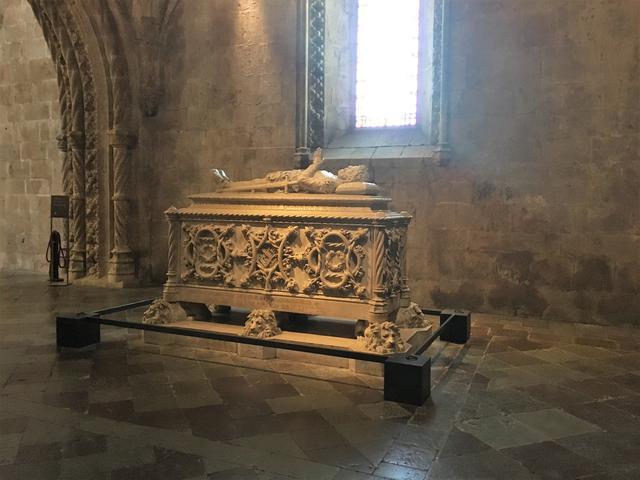Tomb of Luís de Camões

The Tomb of Luís de Camões is a significant point of interest located in Lisbon, Portugal. This historical site holds the remains of Luís de Camões, the renowned Portuguese poet who is considered one of the greatest in European literature. The tomb was placed in its current location in 1940, within one of the side chapels. It holds great cultural and historical significance, as it was solemnly carried in a river procession in the late 19th century to commemorate the third centenary of the poet's death.
Luís de Camões is best known for his epic poem "Os Lusíadas," which was published in 1572. This masterpiece narrates the Portuguese discovery of the sea route to India and showcases various episodes of Portuguese history that glorify the nation. Camões, who traveled to the East on a Portuguese ship in 1553 and returned in 1567, passed away in 1580, leaving behind a legacy that continues to inspire generations of poets and writers.
The tombstone itself is a work of art, crafted from limestone in 1894 by Costa Mota. It features neomanueline decoration, with intricate elements that pay homage to the life and achievements of Luís de Camões, as well as the rich history of Portugal. The tomb rests on six stone lions and measures 2.50 meters in length by 1 meter in width. At the top of the tomb, there is a striking 1.75-meter statue of Camões, depicted as a knight with a laurel wreath on his head, his hands crossed, and his head resting on a stone cushion.
The detailed craftsmanship of the tomb is evident in the gold-lettered inscription on the side, which features phrases taken from "Os Lusíadas." This elaborate tribute to Luís de Camões serves as a lasting memorial to his literary contributions and his enduring legacy in Portuguese culture. Visitors to the tomb can admire the intricate details of the sculpture, pay their respects to the poet, and gain a deeper appreciation for the rich literary heritage of Portugal. The Tomb of Luís de Camões stands as a testament to the enduring legacy of one of Portugal's most celebrated literary figures.
© ChatGPT 3.5